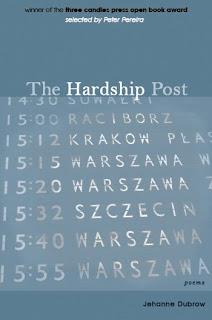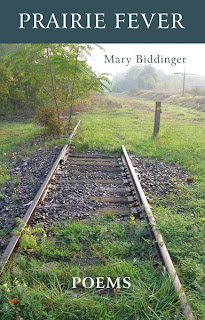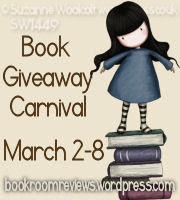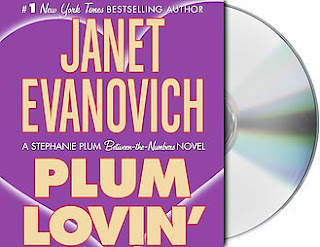From the Fever-World
By Jehanne Dubrow
In the fever-world, my dearest,
our hands aren’t clean
for very long, the brambles
biting in our palms,
deep thorns across our life lines–
here, even the shrub
surrendering fruit to the picker
resents the sacrifice and wants
its juices given back in blood.
if you are hungry, starve yourself.
Make a desert of your thirst.
Don’t fall asleep
Here, my dearest,
there’s only wilderness where fields
should be, only the blackberries
concealing knives,
cherries pitted with buckshot
to choke the unsuspecting throat,
and peaches whose centers hold
dark stones of cyanide.
– first appeared in The Barn Owl Review
I’ve been working on a interview project with Deborah at 32 Poems magazine, and she kindly allowed me to interview past contributors to the magazine. We will be posting the interviews throughout the coming months, and our seventh interview posted on Deborah’s Poetry Blog of 32 Poems on March 13. I’m going to provide you with a snippet from the interview, but if you want to read the entire interview, I’ll provide you a link for that as well. For now, let me introduce to you 32 Poems contributor, Jehanne Dubrow :
1. How would you introduce yourself to a crowded room eager to hang on your every word? Are you just a poet, what else should people know about you?
I suppose one of the most interesting things about me is my nomadic childhood. I was born in a little town in Northern Italy and grew up in Yugoslavia, Zaire, Poland, Belgium, Austria, and the United States. Oh, and when I twenty-years-old, I played a gangrenous valley girl in the movie An American Werewolf in Paris (sadly, I ended up on the cutting room floor). I still remember my line: “Claude’s parties are wack!!!”
2. Do you see spoken word, performance, or written poetry as more powerful or powerful in different ways and why? Also, do you believe that writing can be an equalizer to help humanity become more tolerant or collaborative? Why or why not?

3. Do you have any obsessions that you would like to share?
I have an odd mix of obsessions, half scholarly and half not-so-much: Holocaust studies, American Jewish literature, my dog Argos, midcentury modern design, and Hermes scarves.
4. Poetry is often considered elitist or inaccessible by mainstream readers. Do poets have an obligation to dispel that myth and how do you think it could be accomplished?
Nowhere else in the world do people worry or complain about the elitism of poetry. When Americans complain that poetry is elitist, what they’re really addressing is the strong strain of anti-intellectualism in this country. Americans don’t like to feel stupid, and poetry often makes them feel stupid. I don’t think poetry needs to become less elitist; I think we need to do a better job teaching students how to read poems or, for that matter, how to look at paintings, how to listen to operas, how to watch ballets.
From the Spring Issue of 32 Poems by Jehanne Dubrow:
FRAGMENT FROM A NONEXISTENT YIDDISH POET
Ida Lewin (1906-1938)
AlwaysWinter, Poland
2.
Each year, the chill creeps in
By June, our eaves sharp
with iron icicles, our windows
rattling like teeth against the cold
AlwaysWinter we call this town
because the ground won’t thaw,
no matter how we press skin
to skin, make a fire from
this friction we call love.
Thistles remain needles, each blade
of grass a blade that slices
to our soles AlwaysWinter
we say to justify the frozen places
everywhere—the constant
the wind, the tundra buried
deep inside our bones
Want to find out what Jehanne’s writing space looks like? What music she listens to while she writes? Find out what she’s working on now, her obsessions, and much more. Check out the rest of my interview with Jehanne here. Please feel free to comment on the 32 Poems blog and Savvy Verse & Wit.
Jehanne Dubrow’s work has appeared in Shenandoah, Poetry Northwest, Gulf Coast, and Prairie Schooner. She is the author of the poetry collection, The Hardship Post, winner of the Three Candles Press First Book Prize (2009), and a chapbook, The Promised Bride (Finishing Line 2007). A second collection, From the Fever-World, won the Washington Writers’ Publishing House Award and will be published in 2009. Her third poetry collection, Stateside, will be released by Northwestern University Press in 2010.
***GIVEAWAY REMINDER***
I also have two copies of Diana Raab‘s My Muse Undresses Me and one copy of Dear Anaïs: My Life in Poems for You. Deadline is March 18 at 5PM EST.
One gently used ARC of Reading by Lightning by Joan Thomas; Deadline is March 20 at Midnight EST.














 (Part of the BookRoom Reviews Book Giveaway Carnival)
(Part of the BookRoom Reviews Book Giveaway Carnival)









